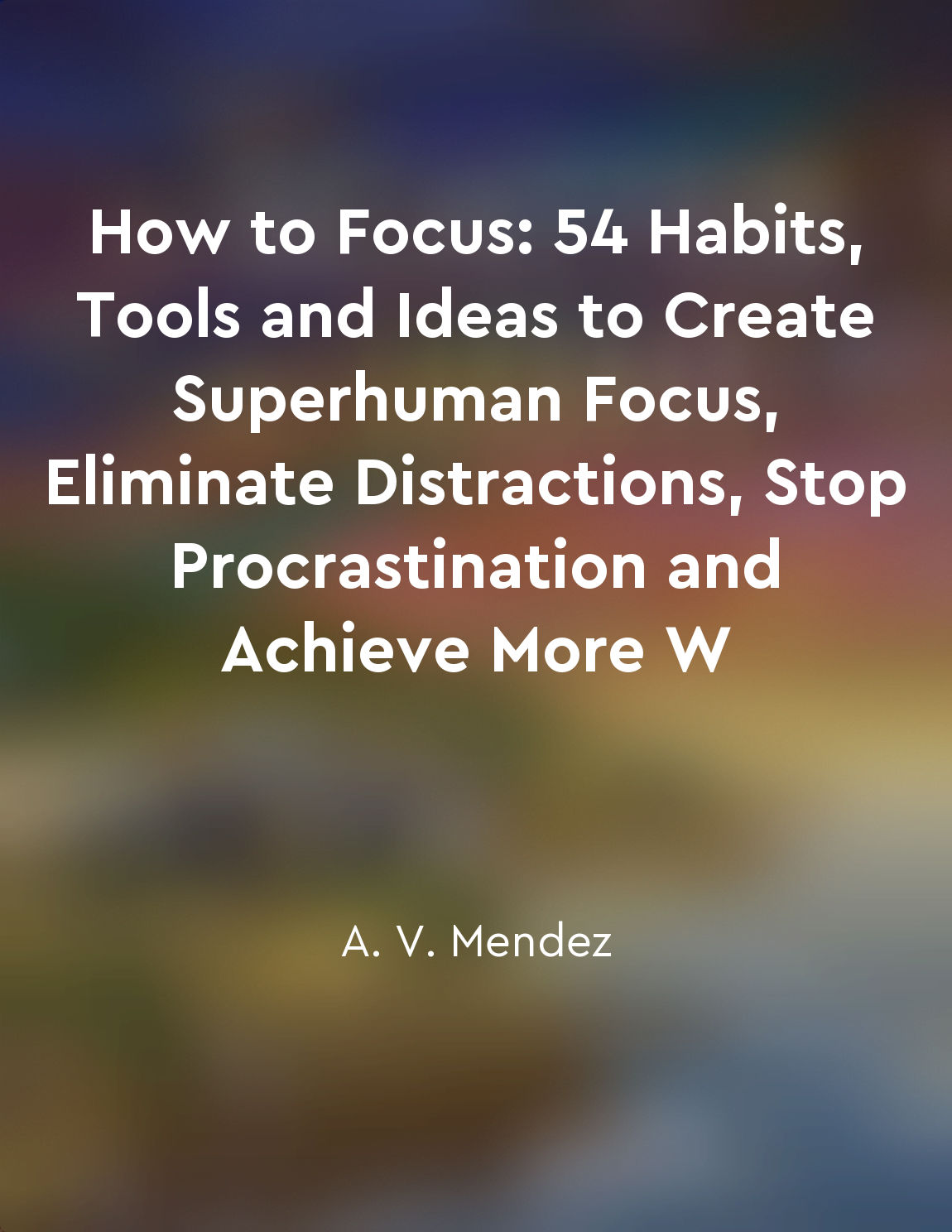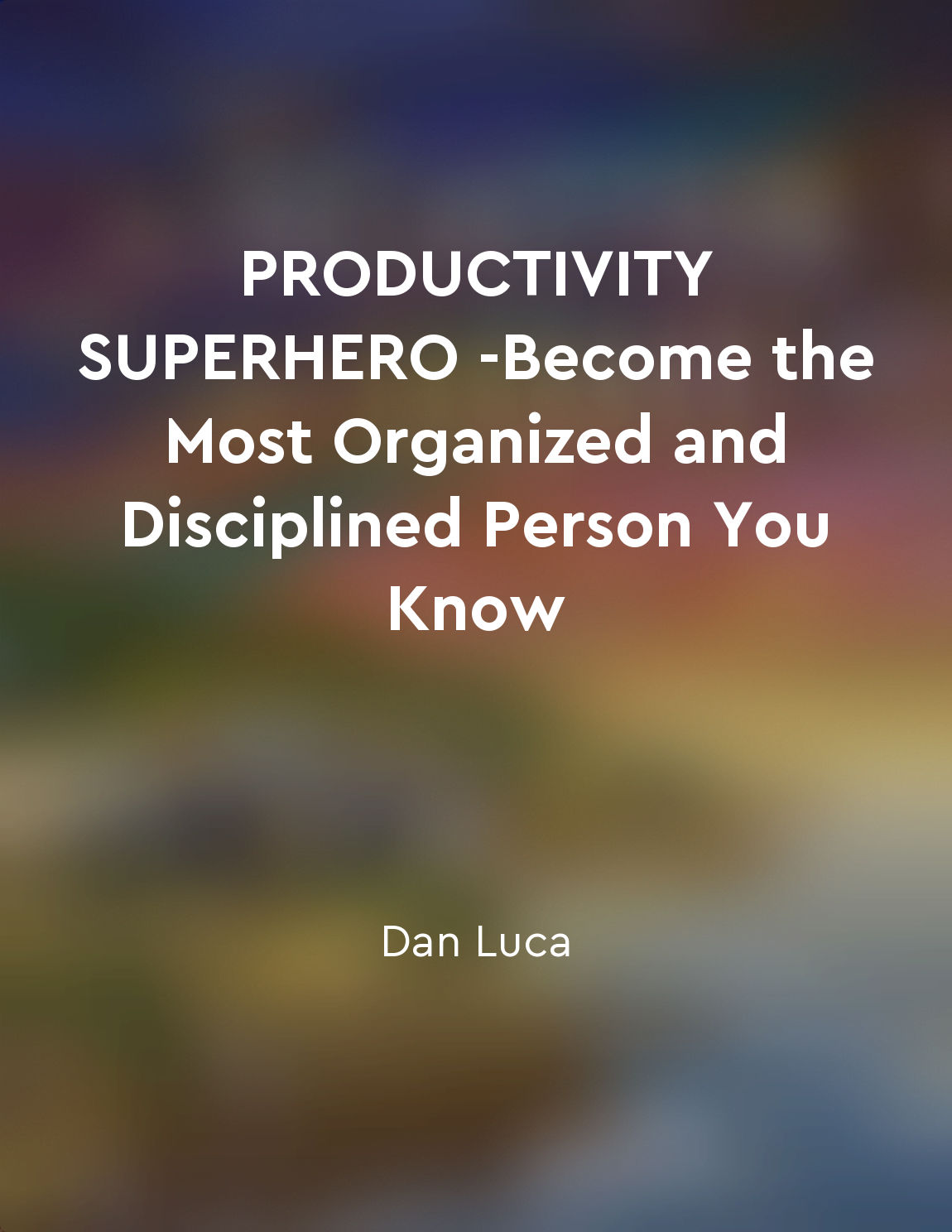Audio available in app
Distractions and interruptions can disrupt flow from "summary" of Flow (Edição revista e atualizada) by Mihaly Csikszentmihalyi
When we are fully immersed in an activity, our attention is focused entirely on the task at hand. This state of intense concentration is what psychologist Mihaly Csikszentmihalyi refers to as "flow." In this state, we experience a sense of energized focus, full involvement, and enjoyment in the process of the activity. However, distractions and interruptions can disrupt this state of flow and hinder our ability to fully engage with the task. Distractions come in many forms, from external stimuli such as noise or interruptions from others, to internal distractions like wandering thoughts or self-doubt. These distractions divert our attention away from the task at hand, breaking the seamless flow of our concentration. When we are constantly bombarded by distractions, we are unable to enter into a state of flow and instead find ourselves struggling to maintain focus. Interruptions can also disrupt the flow state by pulling us out of our immersive experience and forcing us to shift our attention elsewhere. Whether it's a phone call, a sudden noise, or a colleague stopping by to chat, interruptions can break the rhythm of our work and make it difficult to regain our focus. In order to truly experience flow, we need uninterrupted time and space to fully engage with the task at hand. To counteract distractions and interruptions, Csikszentmihalyi suggests creating an environment that is conducive to flow. This may involve finding a quiet space to work, setting boundaries with others to minimize interruptions, and eliminating potential distractions such as phones or email notifications. By proactively managing our environment and minimizing potential disruptions, we can create the conditions necessary to enter into a state of flow and fully immerse ourselves in our activities.Similar Posts

Overcome procrastination with small steps
When you feel overwhelmed by a task, it's easy to procrastinate and put it off. This is a common phenomenon that many people st...
Practice effective time management techniques
To maximize your productivity and achieve your goals within the 12-week time frame, it is crucial to implement effective time m...

Simplify your message to connect with customers
The key to connecting with customers is simplicity. Keep your message clear and straightforward. Avoid overwhelming your audien...

Reflect on your progress to stay focused on goals
To maintain focus on your goals, it is essential to periodically reflect on your progress. Reflecting on your progress allows y...

Regularly review and update your lists
Consistency in maintaining your lists is crucial in order to ensure that they are accurate and up-to-date. Without regular revi...
Seek feedback and insights from others
It is crucial to involve others in the process of managing your time effectively. Seeking feedback and insights from colleagues...

Surround yourself with supportive and likeminded individuals
Surrounding yourself with supportive and like-minded individuals is crucial to your success. It is said that you are the averag...
Drive for results
One of the key principles that underpins the success of the 4 Disciplines of Execution is the relentless pursuit of results. Th...
Visualize success and work towards manifesting it
Picture this: a future where you have achieved all your goals, where success is not just a dream but a reality. This vision is ...
Set clear goals to guide your actions
To achieve success in any endeavor, it is essential to set clear goals that will guide your actions. Without clear goals, it is...
